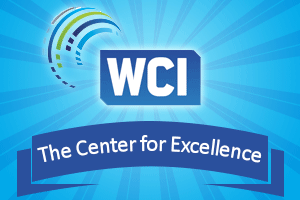
I am looking forward to the 2015 Workers’ Compensation Educational Conference in Orlando. I will be moderating The Center for Excellence – The Study of Medical Cost Drivers in Workers’ Compensation panel titled, “Managing prescription drugs and powerful narcotics.” We have some amazing panelists who are going to share their forward-thinking approaches to early intervention and effectively addressing claims with long-term exposure to narcotics. I want to encourage you to attend the Workers’ Compensation and Education Conference and especially The Center for Excellence track.
Let’s take a look at why this will be such an important session for you to attend. We have found in the course of managing the opioid problem with our workers’ compensation claimants, that many physicians are not open to changing or reducing the medications. In considering the WHY, I have the following thoughts:
- More than half of injured workers take opioids which have severe side effects. It has become the standard of care rather being reserved for the worst cases. Furthermore, rather than discontinuing the medications when there is a side effect, we see physicians give additional medications to treat the side effect. Dr. Melissa Broadman, SVP, Pharmacy and Utilization Review for Sedgwick talked to WorkCompWire recently about long-term opioid use. “ Melissa Broadman: Monitoring Prescriptions Can Reduce Costs, Boost Productivity – and Improve Lives”
- When it comes to managing pain, the subjective nature of the level of pain is what is used to determine the amount and frequency of the medication prescribed, instead of the mountain of well-documented medical evidence.
- Few physicians calculate or set thresholds as to the highest dose they will prescribe. Instead they let the patient dictate by their pain level.
- The improvement of function while taking these medications needs to be well-documented in order to assess whether they should continue. Many doctors are not even inquiring about the injured worker's functionality.
- These medications are very addictive. To manage a patient that has escalated beyond reasonable doses requires a great deal of skill and patience. Frequently, physicians do not have the staff to answer the phone calls and reactions to any lowering of doses or weaning programs.
- This issue becomes compounded when physicians realize they have caused the problem in the first place and just how complicated it is to fix.
- We are still operating in a fee-for-service environment in the workers’ compensation system and the bottom line is physicians want to keep their patients happy. Especially in employee choice state jurisdictions, the injured worker will find another physician to meet their needs.
- Change and real patient management requires a willingness to be open and honest about practice patterns and to take a good long look at what is in the actual best interest of the patient to allow them to return to LIFE.
- We need to find a way to stop the madness and treat injured workers with the highest-quality care because they deserve it!
What are your thoughts on managing prescription drugs and powerful narcotics in the workers’ compensation system? Share your thoughts or questions here or reach me on Twitter @HealthyBart and I will be sure and ask our expert panel to address your questions. I look forward to seeing you in Orlando.